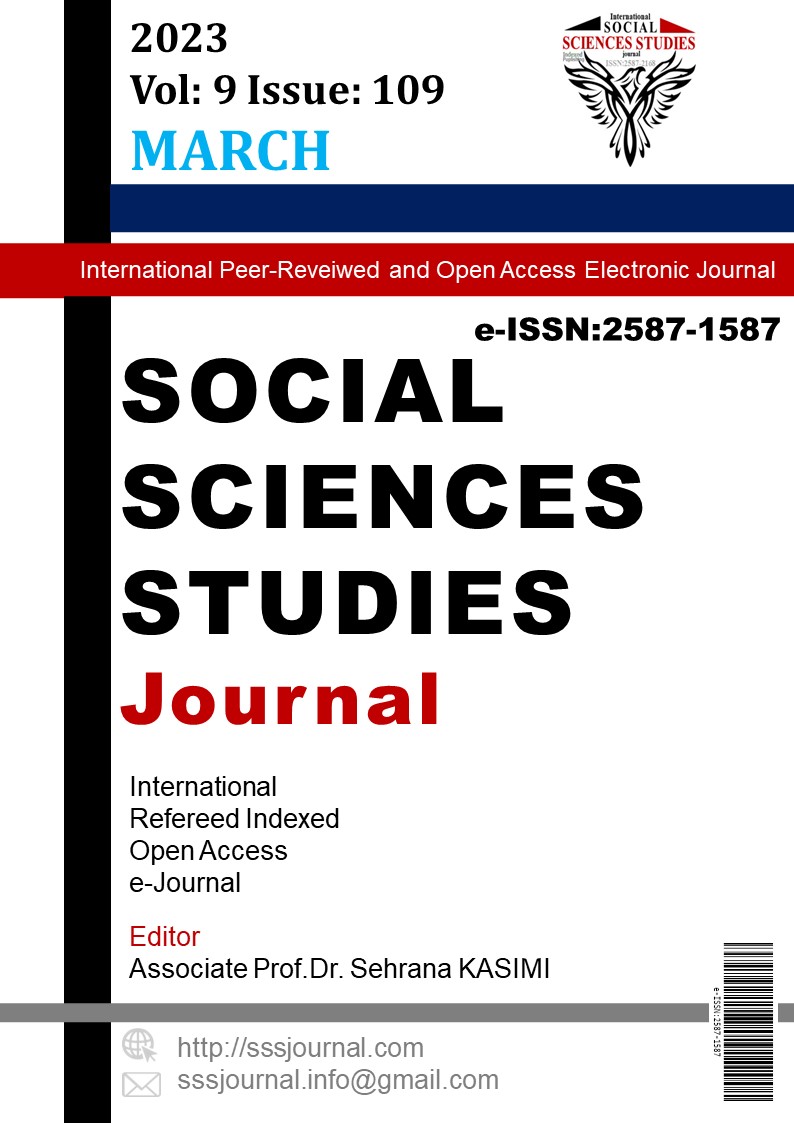Author :
Abstract
Kur’ân-ı Kerîm’de yer alan ayetler ve Hz. Peygamber’in uygulamalarının özü itibariyle, mevcut sosyo-kültürel şartlarda yapılabilecek olanın en iyisini yaparak ibkâ, ilgâ ve ıslah ilkelerinin işletilmesine dayandığı görülür. Söz konusu kadın olduğunda ise ibadetlerden muâmelât alanına kadar birçok radikal değişimden bahsetmek mümkündür. Sonraki dönemler açısından konunun müçtehitler tarafından toplumsal rolleri, aile içi dengeleri ve fıtratı sarsmayacak şekilde dönemin algılarına göre yorumlandığı söylenebilir. Dinin anlaşılması ve yaşanmasına dair müçtehitlerin bireysel çabasının ürünü olan ilmihaller de yazıldığı dönemin kültürel algı ve anlayışları ile sosyo-ekonomik şartlarının da ürünüdür. Ancak aynı konulara dair benzer hükümlerin tekrar edildiği ilmihallerdeki kadına dair bazı görüşlerin günümüzde yeniden düşünülmesine ihtiyaç bulunmaktadır. Bu çalışmada ilmihallerdeki kadın algısı, kadının kocasının iznine bağlı olarak yapabileceği ibadetler (farz namazlar için cemaate katılması, nafile namaz kılması, adak ve nafile orucu tutması, itikâfa girmesi, farz olan hac için yolculuğa çıkması ve ihrama girmesi, farz olan ilimleri öğrenmek için evden çıkması) bağlamında değerlendirilecektir. Mezhepler arası bir takım görüş farklılıklarına da yer verilerek hali hazırda gelinen noktada günümüz şartları ve imkanları açısından konuya dikkat çekilecektir. Kadın ve erkeğin aile ve toplumdaki rolleri bakımından değişen algılar, zikredilen konuların da yeniden ele alınmasını gerekli kılmaktadır. Zira ilmihaller kısa, özlü ve kolay bir biçimde dini bilgilerin ulaştırılması gibi bir amaca hizmet etmesi yönüyle halk dindarlığı açısından da hala önemlidir. Bu sebeple din ve dinin düzenlemeleri üzerine sağlıklı bir algı üretebilmek için kadına dair fıkhi hükümlerin arka planındaki zihniyet değişimini sağlayacak parametrelerin yeniden gözden geçirilmesine ihtiyaç bulunmaktadır. Çalışmada Kur’an ve sünnet açısından sunulan argümanlardan yola çıkarak bu algının doğru tespitini yapmak hedeflenmiştir.
Keywords
Abstract
It is seen that the verses in the Qur'an and the practices of the Prophet are based on the operation of the principles of ibqā, abolition and reform by doing the best that can be done in the current socio-cultural conditions. When it comes to women, it is possible to talk about many radical changes from worship to the field of treatment. In terms of the following periods, it can be said that the subject was interpreted by mujtahids according to the perceptions of the period in a way that would not disturb their social roles, family balances and nature. The catechisms, which are the product of the individual efforts of mujtahids to understand and live the religion, are also the product of the cultural perceptions and understandings and socio-economic conditions of the period in which they were written. However, there is a need to reconsider some of the views on women in the catechisms, in which similar provisions on the same issues are repeated In this study, the perception of women in catechisms, the worship that a woman can do depending on her husband's permission (joining the congregation for obligatory prayers, performing supererogatory prayers, keeping vows and voluntary fasts, entering Itikaf, traveling for the obligatory pilgrimage and entering the ihram, to learn the obligatory sciences). will be evaluated in the context of leaving the house). By including some differences of opinion between the sects, attention will be drawn to the subject in terms of today's conditions and possibilities at the current point. Changing perceptions in terms of the roles of women and men in the family and society necessitate reconsidering the mentioned issues. Because catechisms are still important in terms of folk religiosity as they serve a purpose such as conveying religious information in a short, concise and easy way. For this reason, in order to produce a healthy perception on religion and its regulations, there is a need to reconsider the parameters that will provide the mentality change in the background of the legal provisions on women. In this study, it is aimed to determine the correct perception of this perception based on the arguments presented in terms of the Qur'an and the Sunnah





